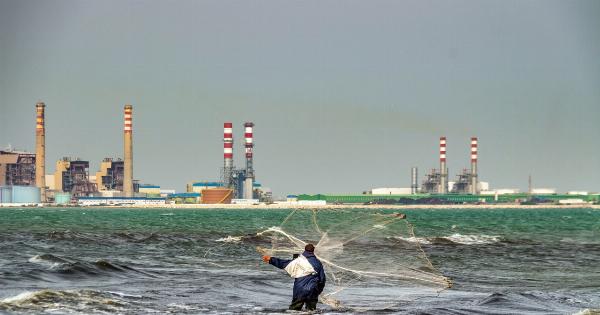The exceptional fatty fishery, known for its abundance of high-quality fatty fish, is currently experiencing a significant decline.
This decline is a cause of concern for both environmentalists and individuals who rely on this fishery for their livelihoods. In this article, we will explore the causes behind this deterioration and discuss potential solutions to revive the exceptional fatty fishery.
Causes of the decline
Several factors have contributed to the deteriorating state of the exceptional fatty fishery:.
Overfishing
Overfishing is one of the primary factors responsible for the decline in the exceptional fatty fish population. The demand for these fatty fish has exceeded the sustainable level of fishing.
Habitat destruction
The destruction of the fishery’s habitat, including coral reefs and seagrass beds, has significantly impacted the fish population. Pollution, coastal development, and climate change are among the contributors to habitat degradation.
Climate change
Climate change plays a significant role in the deteriorating state of the exceptional fatty fishery.
Rising sea temperatures, ocean acidification, and altered ocean currents negatively affect the fish’s breeding patterns, migration routes, and overall survival.
Lack of regulations
Inadequate fishing regulations and poor enforcement have further exacerbated the decline of the exceptional fatty fishery. Without proper monitoring and management, unsustainable fishing practices continue to threaten the fish population.
Consequences of the decline
The decline in the exceptional fatty fishery has far-reaching consequences:.
Ecological impact
The reduced population of these fatty fish disrupts the marine ecosystem. Fatty fish play a crucial role in maintaining the balance of the food chain and supporting the overall health of marine life.
Economic implications
Communities that rely on the exceptional fatty fishery for their economic well-being suffer as the decline leads to decreased income and job opportunities.
This loss of livelihood affects not only fishermen but also those involved in processing, distribution, and tourism industries.
Cultural significance
For many coastal communities, the exceptional fatty fishery holds significant cultural importance. The fish have been a staple in local cuisines and traditional practices for generations, and the decline threatens this integral part of their heritage.
Solutions to revive the fishery
To address the deteriorating state of the exceptional fatty fishery, several measures can be taken:.
Enforce sustainable fishing practices
Implementing and enforcing strict fishing regulations, such as catch limits and no-take zones, can help prevent overfishing and allow the fish population to recover.
Protect and restore habitat
Efforts should be made to protect and restore the fishery’s habitat, including coral reefs and seagrass beds. This may involve reducing pollution, minimizing coastal development, and establishing marine protected areas.
Climate change mitigation
Addressing the root causes of climate change and implementing measures to mitigate its impact, such as reducing greenhouse gas emissions and promoting renewable energy, can help preserve the fishery’s habitat and support the fish population.
Invest in research and monitoring
Increased investment in scientific research and monitoring programs can provide valuable insights into the exceptional fatty fishery. This knowledge can inform effective management strategies and conservation efforts.
Promote sustainable seafood consumption
Education campaigns and initiatives promoting sustainable seafood consumption can raise awareness among consumers and encourage responsible choices.
Supporting local and sustainable fishing practices can provide economic incentives for fishermen to adopt sustainable methods.
Conclusion
The deteriorating state of the exceptional fatty fishery poses significant challenges, but with concerted efforts, it is possible to revive this fishery.
By addressing the causes of decline, implementing sustainable fishing practices, protecting the habitat, mitigating climate change, and promoting responsible consumption, we can work towards a future where this exceptional fishery thrives once again.





























